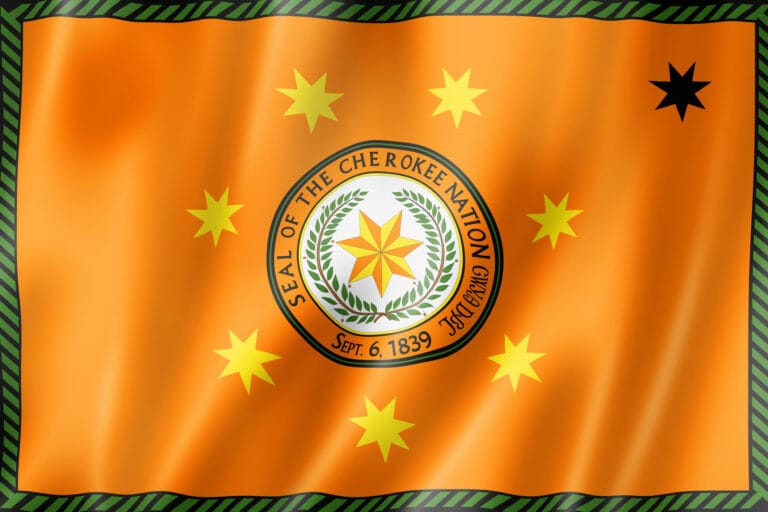Chief Wilma Mankiller
The courage of a warrior and the soul of a poet

“ Cows run away from the storm while the buffalo charges toward it, and gets through it quicker. Whenever I’m confronted with a tough challenge, I do not prolong the torment. I become the buffalo.”
Chief Wilma Mankiller
When we reflect on the women in our country whose lives form the bedrock of progress, whose courage stirred action among her people and across the United States, Chief Wilma Mankiller’s name rises with brilliant clarity. She was not only the first woman to lead the Cherokee Nation, she was a national transformative leader, a fierce advocate for Indigenous people’s sovereignty, and a testament to the kind of change that is possible when resilience meets vision.
Wilma Pearl Mankiller was born on November 18, 1945 in Tahlequah, Oklahoma, the capital of the Cherokee Nation. Her surname that is often sensationalized is, in fact, a traditional Cherokee military title that was bestowed upon her paternal lineage. She is also named “Beloved Woman,” a great honor in her culture.

Like so many Indigenous children, Wilma Mankiller was subjected to federal relocation policies that were meant to assimilate Native Americans into white urban society. In 1956, when she was 11 years old, her family was moved to San Francisco as part of the Bureau of Indian Affairs Relocation Program. But rather than assimilating into the white urban society, Wilma Mankiller marched alongside the Black Panther Party, engaged with the United Farm Workers, and found kinship in the 1969 occupation of Alcatraz Island, a seminal movement for Native sovereignty. Her passion for equality and justice started very early and persisted throughout her life.

Wilma Mankiller’s return to Oklahoma in the 1970’s was not just a homecoming, it was a reclamation. She began working at the Cherokee Nation’s Community Development Department where she launched self-help projects focused on water access, housing and education. Her best known initiative, the Bell water project, drew on volunteer labor to bring clean water to a remote Cherokee community.
In 1983, Wilma Mankiller was elected Deputy Principal Chief of the Cherokee Nation. Two years later when she became Principal Chief of the Cherokee Nation, she was the first woman to be elected to that position. During her tenure as Chief, tribal enrollment tripled and employment, health care initiatives and advanced education doubled.
Throughout her life, Chief Mankiller battled health challenges, including a kidney transplant, and breast and pancreatic cancer. After surviving a near fatal car accident and battling myasthenia gravis, an autoimmune disease that left her physically weakened, she emerged not diminished but determined.

It was in the year 2022 that the United States Mint honored the extraordinary leadership of Chief Wilma Mankiller with a quarter bearing her likeness. This momentous coin was part of the American Women Quarters Program, a long-overdue recognition of the profound contributions that women, especially women of color, have made in America.
The Wilma Mankiller quarter entered circulation on June 14, 2022. But before that, a deeply meaningful launch event was held in Tahlequah, Oklahoma, the capital of the Cherokee Nation. There, in the heart of her people’s land, her legacy was celebrated not only with words, but with the enduring symbol of her leadership etched in metal.
Let us not miss the meaning here. This is not only about minting coins; it is about minting truth. It is about shaping history in a way that includes the brilliance, the bravery, and the beauty of women who lead with vision and serve with love.

Chief Wilma Mankiller had the courage of a warrior and the soul of a poet. During the pandemic, in the summer of 2021, Charlie Soap, Chief Mankiller’s husband, Greg Shaw and Frances McCue discovered her poems in her barn at Mankiller Flats in Oklahoma.
Wilma Mankiller’s poetry does not simply speak, it remembers. It remembers the land, the mothers, the battles waged quietly and loudly in kitchens, council halls, and the soul. Her verses move with the cadence of Cherokee resilience, carrying the reader across histories both personal and collective. In her poetry book, Mankiller Poems, one feels the heartbeat of a people who have known sorrow and transformation as old companions. Chief Mankiller’s words rise up not only as witness, but as wisdom, grounding us in what it means to be both wounded and whole.
“One of the things my parents taught me, and I’ll always be grateful . . . is to not ever let anybody else define me; [but] for me to define myself.”

Chief Wilma Mankiller’s legacy lives on, not only in policies that she instituted, but in the hearts of Indigenous women and girls who are inspired by her pathbreaking leadership. In 1998, she was awarded a Presidential Medal of Freedom by President Bill Clinton.
Throughout her life, Chief Mankiller fought for:
• The rights of indigenous people
• Native sovereignty
• Women’s rights
• Healthcare initiatives
• Access to clean water, housing and education

Lessons from Chief Mankiller’s Life:
Throughout her life, Chief Wilma Mankiller challenged colonial patriarchy and misogyny in Native governance structures. In doing so, she was a champion for her people and especially for women. She believed and practiced that healing a people begins with listening to them. And leadership is not about giving commands, but about service. She did not wait for permission to lead. As she once said: “Start with where you are. Start by helping one family, one school, one community.”
Like Chief Mankiller, each of us must believe that we women can be leaders who have the power to help to change the world. She said this about the responsibility of a leader: “Speak with clarity. Listen deeply, And never forget, your leadership is an act of resistance and an act of hope.”

Action Steps You Can Take:
Like Chief Wilma Mankiller, you must believe that women hold up half of the sky and as she once said: “Women in leadership roles can help restore balance and wholeness to our communities.”
• Where are you already serving as a leader?
• What leadership role could you take on to make a difference?
• How can you create greater balance in your own life?

Did this article inspire you?
Please share your feedback and share it with others here:
